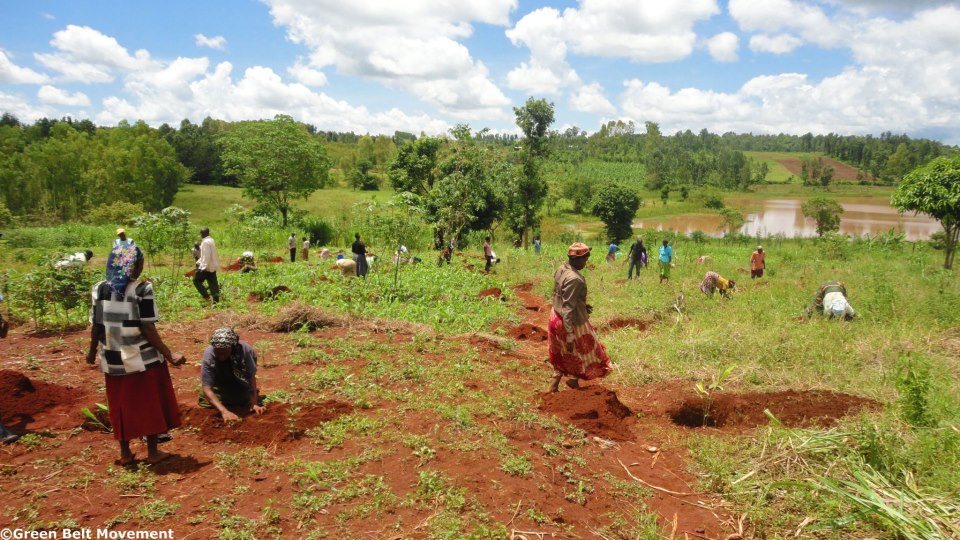The Green Belt Movement is a indigenous
grassrouts non-governmental organisation which started in Nairobi, Kenya, in 1977. Created by
the Nobel Prize Laureate Wangari Maathai, with the help of the National Council of Women of Kenya,
this organisation encourages women from the area to plant trees, combat deforestation and
restore their main source of fuel for cooking, creating profit.
This is where the name of the
organisation comes from: a green belt of trees that protects kenyan villages from hunger and poverty.
Since Maathai started the movement,
over 51 million of trees have been planted, and more than 30,000 women have been trained in
forestry, bee-keeping and other trades that help them ear income. As she said, having their own
possession makes them more authoritarian and powerful, they are not simple housewives any
more.
However, both men and women have been
organised to prevent enviromental destruction, restore what which has been damaged and change
the political situation. Participants began to understan that for years they had been placing
their trust in leaders who had betrayed them and that they were sabotaging their lives by not working
for the common good and failing to use their natural resources
wisely. Consequently, the Green Belt
Movement began to fight against land grabbing and the encroachment of agriculture into the
forests.
In 1981, they got their first
significant funding when the United Nations Development Fund for Women (UNIFEM) provided money that
transformed the effort from a few tree nurseries to a larg number with thousands of seedlings.
That helped also to mobilize thousands of women who Maathai called ‘foresters without
diplomas’. Because of that, several grassroots enviroment an development groups in Ethiopia,
Tanzania, Uganda, Rwanda and other African countries, integrated
this movement ́s approach.

Over the years, the Green Belt Movement
incorporated other community activities apart from tree planting efforts, such as the
cultivation of more nutritious and indigenous foods, effective ways store rainwater, training in
entrepreneurship and providing information on AIDS prevention.
Nowadays, it has extended its reach
internationally to campaign and advocate on climate change the importance of Africa’s
rainforests in the Congo, and has partnered with the UnitedNations Environment Programme
(UNEP) in its Billion Tree Campaign.
After being awarded with the
Nobel Prize in 2004, Professor Maathai ́s and the Green Belt Movement ́s work ́s fame
raised worldwide. She was named ambassador for the Congo Basi Forest Ecosystem, the world
́s second ‘lung’ after the Amazon Rainforest. The four books she writed and the documentary
‘Taking Root: The Vision of Wangari Maathai’ expanded the key concepts behind the Green
Belt Movement ́s achievements.
This NGO continued under her
leadership until her unexpected death in 2011 at the age of 71; but it's still opened to every
single person who would like to put its bit for helping the
enviroment.

No hay comentarios:
Publicar un comentario